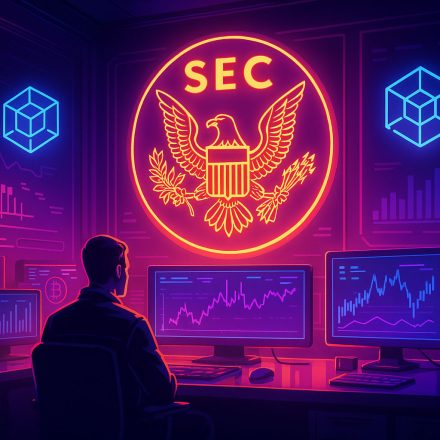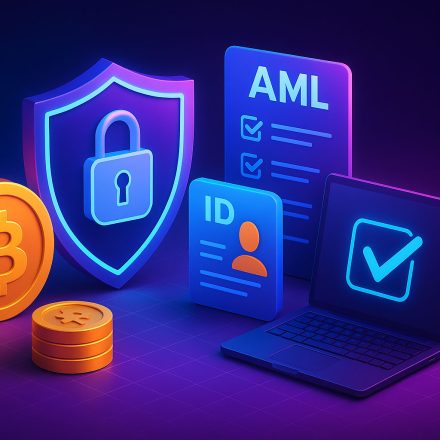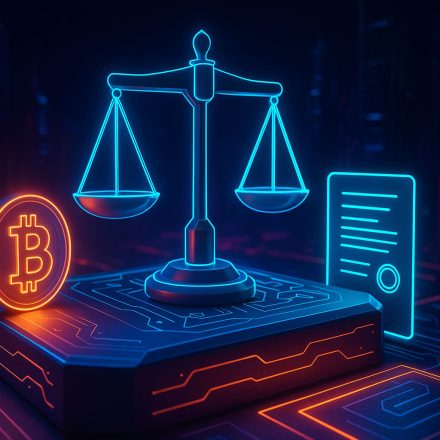
🏛️ The Role of the SEC in Cryptocurrency Oversight: What You Need to Know
🧐 Introduction
The role of the SEC in cryptocurrency oversight has become a major topic in the digital asset world. As billions flow into cryptocurrencies, DeFi platforms, and tokenized assets, the U.S. Securities and Exchange Commission (SEC) has taken an increasingly active role in defining what’s legal — and what’s not.
Table Of Content
- 🧐 Introduction
- 🏢 What Is the SEC and What Does It Regulate?
- Core responsibilities
- 🔍 Why the SEC Is Involved in Crypto
- Why it matters
- ⚖️ Key SEC Actions and Rulings in Crypto
- 1. The DAO Report (2017)
- 2. Ripple (XRP) Lawsuit (2020–2023)
- 3. Coinbase & Binance Enforcement (2023–2024)
- 4. Spot Bitcoin ETF Approvals (2024)
- 🧪 How the SEC Determines What Is a Security
- 📉 Impact of SEC Oversight on Crypto Markets
- 🗣️ Criticism and Challenges of SEC Regulation
- 🔮 The Future of SEC and Crypto Policy
- 🔗 Learn More About Crypto Regulation
In this article, we’ll explore what the SEC does, why it matters in crypto, and how its decisions shape the industry’s future.
🏢 What Is the SEC and What Does It Regulate?
The Securities and Exchange Commission (SEC) is a U.S. federal agency responsible for regulating the securities markets and protecting investors.
Core responsibilities:
- Enforcing securities laws
- Monitoring public companies and stock exchanges
- Overseeing investment advisors and brokers
- Ensuring fair and transparent financial markets
While originally focused on stocks and bonds, the SEC has extended its reach into digital assets — especially tokens that may be considered securities.
🔍 Why the SEC Is Involved in Crypto
The SEC steps in when a crypto asset resembles a security — a financial instrument like a stock, bond, or investment contract.
Why it matters:
- If a token qualifies as a security, it must follow strict rules
- These include registration, disclosures, and investor protections
- Many crypto projects unknowingly (or knowingly) bypass these regulations
The SEC’s position: “Substance over form” — if it walks and talks like a security, it will be treated like one, regardless of tech.
⚖️ Key SEC Actions and Rulings in Crypto
Here are some landmark events that define the SEC’s stance:
1. The DAO Report (2017)
The SEC ruled that DAO tokens were securities under U.S. law, setting a precedent for other token sales.
2. Ripple (XRP) Lawsuit (2020–2023)
The SEC sued Ripple Labs for selling XRP as an unregistered security. In 2023, a judge ruled that some XRP sales were securities, others weren’t — a partial win for both sides.
3. Coinbase & Binance Enforcement (2023–2024)
The SEC sued both exchanges, alleging they listed unregistered securities and operated illegally in the U.S.
4. Spot Bitcoin ETF Approvals (2024)
In a major shift, the SEC approved several Bitcoin ETFs, legitimizing crypto exposure for traditional investors.
These actions affect everything from how projects raise funds to how centralized exchanges operate.
🧪 How the SEC Determines What Is a Security
The SEC uses the Howey Test, a four-part test that asks:
- Is there an investment of money?
- Into a common enterprise?
- With an expectation of profits?
- Derived from the efforts of others?
If the answer is yes to all four, the asset is likely a security under U.S. law.
Most ICO (Initial Coin Offering) tokens and many DeFi assets meet this standard, making them subject to SEC oversight.
📉 Impact of SEC Oversight on Crypto Markets
SEC enforcement and uncertainty can cause:
- Price drops from lawsuits or enforcement
- Delistings of tokens from U.S.-based exchanges
- KYC/AML requirements on DeFi platforms
- Loss of access for U.S. investors to many tokens
- Hesitancy from developers and startups to launch in the U.S.
But SEC guidance also leads to:
- Better consumer protection
- Mainstream adoption (ETFs, institutional money)
- A more credible crypto ecosystem
🗣️ Criticism and Challenges of SEC Regulation
Critics argue the SEC’s approach is:
- Unclear — many projects say there’s no clear path to compliance
- Aggressive — regulation by enforcement, not guidance
- Outdated — applying 1930s laws to 21st-century tech
- Driving innovation offshore — to Europe, Asia, and LATAM
Even within the SEC, some commissioners have voiced concern over how crypto regulation is handled.
🔮 The Future of SEC and Crypto Policy
By 2025, clearer crypto legislation is expected from Congress. This may:
- Define whether a token is a commodity or a security
- Set up a joint framework between the SEC and CFTC
- Introduce new licensing paths for crypto companies
- Offer safe harbor protections for compliant startups
Industry leaders and regulators continue to push for a balanced approach that protects investors without stifling innovation.
🔗 Learn More About Crypto Regulation
- Explore more articles on Regulation & Compliance
- Read SEC’s official crypto guidance










